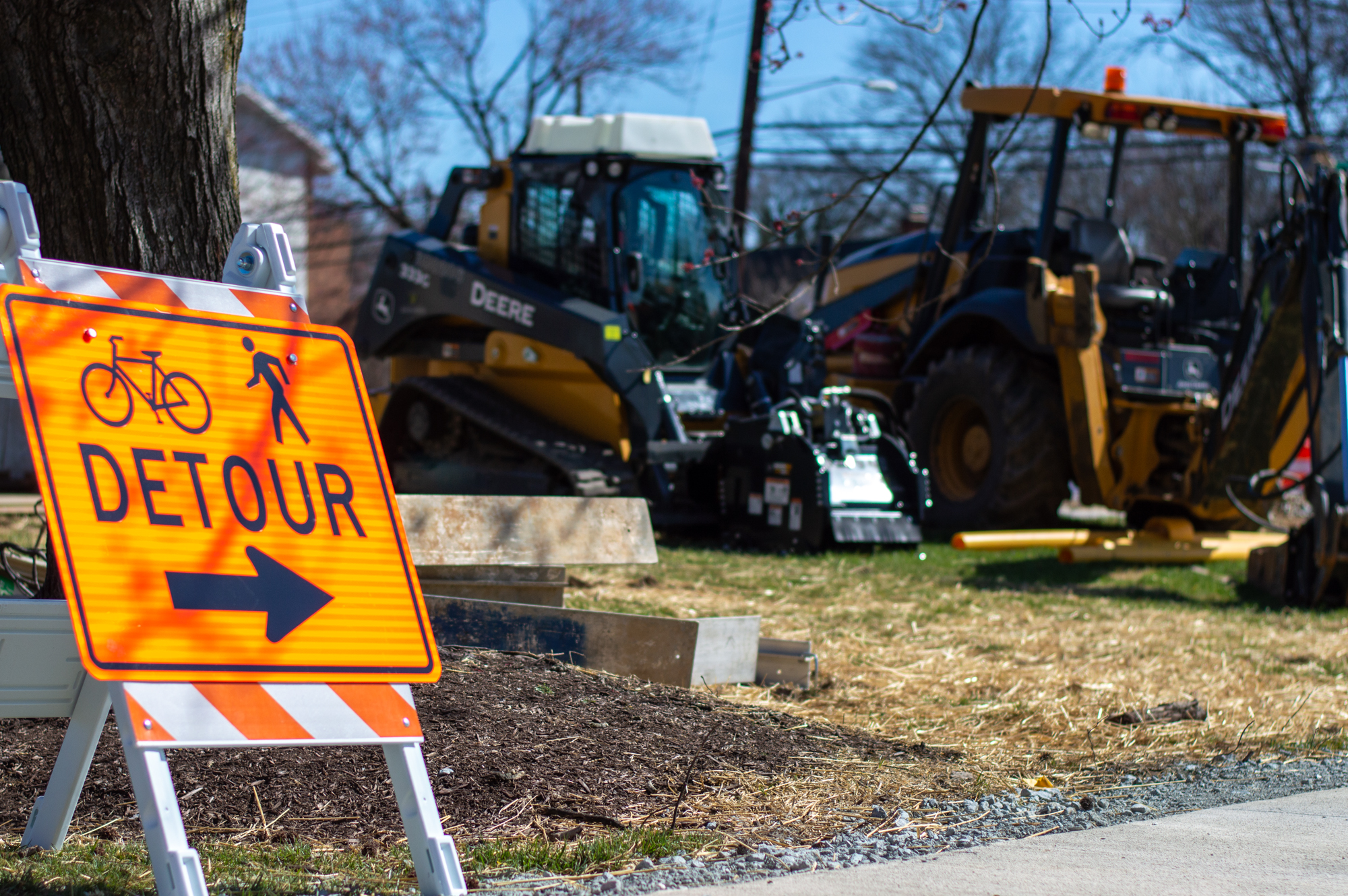Views expressed in opinion columns are the author’s own.
As University of Maryland students, we’ve all been inconvenienced by transportation infrastructure projects, whether it’s the Purple Line construction through the middle of campus or the College Park Metro Station being closed for three months over the summer.
Of course, no one likes to be inconvenienced, and it’s possible to find solace knowing our momentary discomfort will bring us better commutes in the future. Our sacrifices in the present serve more as investments for the future than anything else. Or do they?
Our patience has seemingly gone unnoticed by politicians, who continue to hold up future transportation initiatives in bureaucratic disputes. Recently, the National Capital Region Transportation Planning Board voted to not fund Gov. Larry Hogan’s plan to widen I-270 and I-495, keeping Washington, D.C., commuters stuck in traffic on two of the state’s principal highways.
Earlier this month, the Federal Railroad Administration put the proposed “superconducting Maglev” train proposal from Washington D.C., to Baltimore on hold, leaving the project — and those depending on it for employment and future mobility — hanging. And who can forget when the Purple Line contractors suddenly pulled out of the project, stopping the construction in its tracks?
Time and time again, Washington, D.C., area commuters and suburban residents are being used as collateral damage in distant, inefficient bureaucratic battles. Our government and state agencies need to prioritize people and their well-being over winning political feuds.
It’s no secret that the D.C.-Maryland-Virginia area has an exceptional traffic problem. When Washingtonians spend over 100 hours per year stuck in traffic, they are losing more than their time. They are missing out on economic productivity at work, memorable events with their families and recreational activities for their mental health.
Particularly given the rise in housing prices, people are likely to move away from overpriced central business districts in search of more affordable suburbs, which will make their commutes even longer. Therefore, when politicians stall transit projects, average commuters can be hurt the most.
The government is also simply hurting itself by stalling on transit projects. Not only does public transportation improve overall mobility, but it can provide a region with a major economic boost. According to the American Public Transportation Association, for every $1 spent on public transportation, $5 is generated in economic returns. Further, for every $1 billion spent on public transportation, almost 50,000 jobs are created.
By leaving necessary projects entrenched in bureaucratic debates, the government is missing out on economic gains it could funnel right back into the community and other social initiatives.
In that same vein, public transportation can provide immense social benefits. A Harvard study has shown the relationship between access to public transportation and economic mobility is strongest, even more so than crime, elementary test scores, and the percentage of two-parent households in a community.
It’s evident that public transportation has the power to fix several economic and social issues in our society, both of which government officials try to fix day in and day out — so why would they continue to stall these projects?
One way to mitigate this problem might be to improve the transportation plans themselves, which are often filled with inadequacies for opposing politicians to attack.
Public-private partnerships have been the go-to route for project funding in recent days, as evidenced by the Purple Line construction and the proposed highway widening projects. However, public-private partnerships have proven to be problematic for state infrastructure projects, and are often directly responsible for stagnation.
Perhaps an interstate compact, such as the one used to build the Washington Metropolitan Area Transit Authority, is what is needed to escape the gridlock and get these projects moving. With a fully state-operated project, the power remains in the hands of local people, who would be ready to vote out any politician that continues to delay necessary infrastructure improvements. Perhaps with the agency back in the hands of average citizens, projects will no longer be delayed.
Congestion is inherently a regional problem, and given that this area is so interconnected, there needs to be more cooperation between politicians at all levels of government. By keeping infrastructure projects tied up in bureaucratic debates, politicians fail to do their basic jobs of helping the people they were elected to represent.
It’s time they put the American people before their re-election efforts and invest tangibly in much-needed infrastructure projects.
Anthony Liberatori is a junior environmental science and economics major. He can be reached at alib1204@umd.edu.



